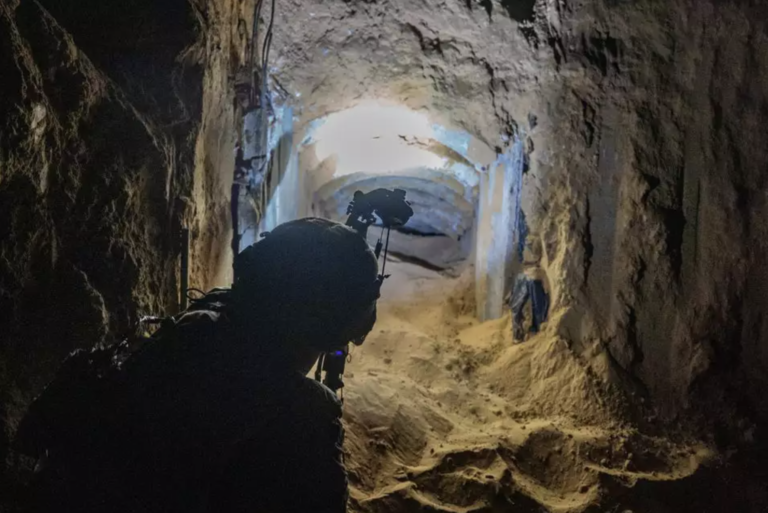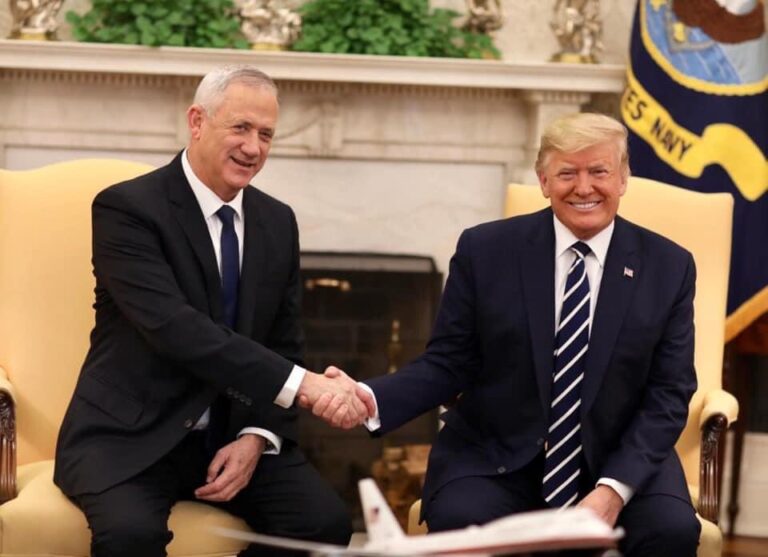The main quality that separates leaders from ordinary citizens is the ability to distinguish between the essential and the trivial. A journalist can tweet in the morning in favor of drafting the ultra-Orthodox into the IDF, at noon in favor of eliminating Hamas, and in the evening propose a broadly agreed-upon constitution. But prime ministers must set priorities. And when you’re high up at the top, the less important thing is sometimes of supreme importance itself.
Such was the story of drafting the Haredim during the war. It was infuriating to hear that senior members of the United Torah Judaism party called the Finance Ministry in the first week of the war to make sure the transfers to the yeshivas continued uninterrupted. It was galling to listen, over the past two years, to the collection of nonsense spouted by Haredi MK Yitzhak Goldknopf, the spokesman for the shtetl mentality. It was awful to see the signs declaring, “We will die before we enlist.”
At the same time, it was clear that running head-first into the ultra-Orthodox wouldn’t lead to mass Haredi enlistment, but more likely to the collapse of the government and, as a result, a halt to the war. In other words, national defeat, leaving Hamas and Hezbollah standing on their feet. This is hard to swallow when you’re an IDF reservist tearing yourself apart in Gaza, or a reservist’s wife buckling under the enormous burden of looking after her family while her husband is at war, but had this struggle succeeded in the past year, it would have turned into a Pyrrhic victory — useful idiocy in the service of those seeking Israel’s defeat.
In the same breath, perpetuating the current situation now, after the war has ended, is useful idiocy in the service of those who support draft dodging. The army will not survive, and neither will the economy, unless major changes are made to Israel’s incentive structure. Today, it’s designed entirely to create conditions that allow Haredim not to show up for military service — and, as a result, not to participate in the labor market.
The law proposed by the coalition, nicknamed the “Bismuth Law” after Foreign Affairs and Defense Committee chairman Boaz Bismuth, will not cure the problem. The prime minister promises it will bring 10,000 ultra-Orthodox soldiers within two years. May it be so. In practice, the law imposes sanctions only if fewer than 7,500 Haredi soldiers are drafted in those two years. Subtract another thousand national service volunteers counted as soldiers, and you reach 3,000 soldiers per year — the exact number drafted this year, without the law.
And in exchange, the sharpest sword ever placed against the neck of the ultra-Orthodox leadership will be lowered: personal and institutional financial sanctions — and under a fully right-wing government. For the first time, the Haredim are truly backed against the wall. If the goal of the legislation is political survival and extending the government’s lifespan, the law is excellent. If the goal is to save Israel’s economy and national security, it is far from sufficient.
There is no reason to believe the situation will somehow resolve itself, because the Haredi worldview does not seek to shape the direction of the state, but rather to use it. Finance Minister Bezalel Smotrich has a plan for what to do with the country on the day religious Zionists become the majority. Yair Golan has a vision for a secular-liberal state if the left returns to power. The ultra-Orthodox do not — because their way of life is unsustainable. It relies on subsidies and budgets from “the state” — but what will happen when they are the state?
In all the demagogic arguments about Torah study, Tel Aviv draft-dodgers, and who contributes more to Israeli society — Army Radio or Ponevezh Yeshiva — there is no answer to the question: Dear ultra-Orthodox, what is your business model?
In an attempt to reduce the burden on those who do serve, many initiatives are now emerging to improve the conditions of compulsory service, career military service, and reserve duty. The finance minister is pouring in billions. This is important and morally right, but irrelevant to the acute problem at hand. Why, for example, does a family in which one spouse does not work receive a significant discount on municipal taxes? I am not referring to the involuntarily unemployed, but to those unemployed by choice. If you want to study Torah, good for you — but why should other residents of your city fund it?
The answer is because the ultra-Orthodox parties hold 18 seats in the current Knesset and keep the coalition majority afloat. Without them — and because of the opposition’s “anyone-but-Bibi” obsession — Benjamin Netanyahu would not have a government, and Israel is unlikely to have achieved its astounding military successes from Beirut to Tehran. But with them, a law that would bring real enlistment of the Haredim cannot be implemented.
The Bismuth law proves it: all immediate economic sanctions were removed. What remains? A ban on flying abroad and a ban on a driver’s license — in short, codifying into law exactly what every yeshiva head wants from his students. The definition of “who is ultra-Orthodox” has been significantly watered down, the requirement for combat soldiers has disappeared, and oversight was given to a joint IDF-Haredi committee, both of whose members have extensive experience bending the truth. In the previous round of negotiations, even Druze soldiers were counted as ultra-Orthodox in order to meet the quotas.
This government cannot pass a real draft law. Even the outline discussed on the eve of the Iran war in June was an agreed-upon fraud: the ultra-Orthodox did not intend to abide by it, and Yuli Edelstein, then-chair of the Foreign Affairs and Defense Committee, did not intend to settle for it.
There will be no compromise, and in a few years, thanks to demographics, it will already be too late to steer the Israeli ship away from the iceberg. The next government will have to look the mission straight in the eye, not look away. Until then, supporting the current law is buying time for a coalition in its twilight days, at an unbearably high price for Israeli society.
The above is an excerpt from my Shabbat column in Israel Hayom. Read it on Israel Hayom’s website here.









